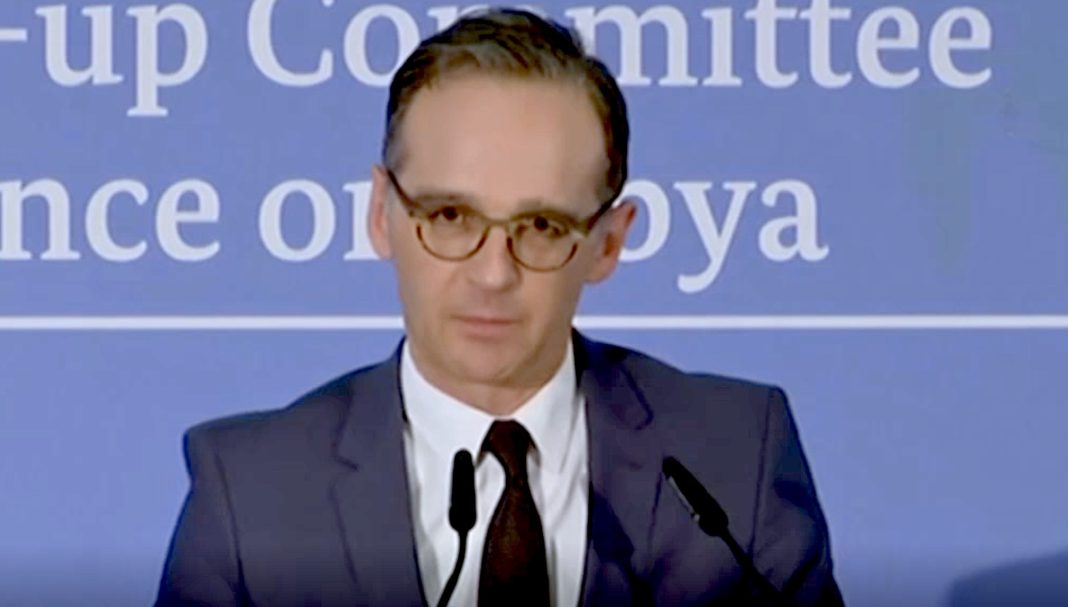ISTANBUL – By Janet Ekstract – On Sunday, German Foreign Minister Heiko Maas chaired the Munich Conference with the Libya conflict being front and center on the agenda as the situation in the North African country has rapidly deteriorated due to violations of the UN arms embargo and foreign support for renegade warlord Khalifa Haftar who is threatening peace in the oil rich nation.
United Nations Deputy Envoy for Libya, Stephanie Williams commented that the called-for ceasefire in Libya is barely existent, that the economic situation is crumbling and said: “The arms embargo has become a joke.”
Meanwhile, Maas emphasized that Turkey has a crucial role to play in any peace solution for Libya. Maas said Turkey would be a significant partner in the effort to create a lasting ceasefire in Libya after he held a bilateral meeting with Turkish foreign minister Mevlut Cavusoglu on Saturday. In contrast, Saudi Foreign Minister Prince Faisal bin Farhan al-Saud also a conference participant, called out Turkey in its support for the UN-backed Government of National Accord (GNA) by saying “Now there are troops coming from Syria who are being sent over by Turkey,” adding: “Of course, none of this helps at all and only brings more instability.”.
Just a week ago, the UN Security Council (UNSC) met and passed a resolution signed off on by 14 nations to further what was termed as a more “lasting ceasefire” and to create a situation on the ground in Libya for monitoring the ceasefire which might mean deploying UN peacekeeping troops to the conflict-ridden country.
The Munich Conference was called as a follow-up to the Berlin Conference held on Janary 19 that was chaired by German Chancellor Angela Merkel and UN Secretary-General Antonio Guterres where both called for a strict adherence to the UN arms embargo and where 12 nations agreed to a 55-page communique that was signed and agreed on – committing to uphold their commitments to a permanent ceasefire and an end to foreign interference in the ongoing conflict.
A major issue brought up at the conference was how to monitor the UN arms embargo at sea and by air. To that end, EU foreign ministers are scheduled to meet in Brussels on Monday, February 17, to make a decision on the contribution the EU can make and in what capacity naval ships might enforce the UN arms embargo. The German foreign minister stressed that most crucial is that all types of weapons being delivered into Libya must be monitored by air, water and land. Maas reiterated to reporters that: “Therefore, the surveillance regime must be able to do all three different ways of surveillance, otherwise one side will be disadvantaged.”
EU chief diplomat, Josep Borrell who spoke at the conference, expressed his concern about the fact that just one EU member state would have the power to block any EU action to monitor the UN arms embargo in Libya. Borrell remarked: “If tomorrow 26 countries will agree to have a naval mission to monitor the UN arms embargo in Libya, and one, without a navy is against, what are we going to do?”
So far, the UN arms embargo has been violated multiple times and since the Berlin Conference, conflicting sides from Libya have met in a Joint Military Committee (JFC) under UN participation, to try and flesh out a more lasting ceasefire while attempting to satisfy each side’s demands. As Germany’s foreign minister Maas said: “It is now step by step to implement what was decided in Berlin.” Maas also mentioned that there had been “very open” talks about the “numerous violations of the arms embargo” in the last several weeks where Maas said “quite different opinions” have led to the violations of the embargo. Libya’s UN deputy envoy Williams said: “It’s complicated because there are violations by land, sea and air, but it needs to be monitored and there needs to be accountabilitity.” Maas added: “It is important to create transparency, and make clear that those who breach need to know that they will be detected.”
Maas concluded: “But everyone agrees that the path we have taken to separate the parties to the conflict from their supporters remains the only promising way to end the civil war in Libya.” The German foreign minister added: “words agreed in Berlin now must be followed by deeds.” Meetings will continue toward this end and Maas announced a rotation for chairing the Libya follow-up conference. He said Italy will host the next meeting in Rome in March.




